-
 Bitcoin
Bitcoin $117700
-0.03% -
 Ethereum
Ethereum $3805
0.49% -
 XRP
XRP $3.098
-1.00% -
 Tether USDt
Tether USDt $1.000
0.03% -
 BNB
BNB $792.8
-1.72% -
 Solana
Solana $177.9
-1.95% -
 USDC
USDC $1.000
0.02% -
 Dogecoin
Dogecoin $0.2202
-1.55% -
 TRON
TRON $0.3278
-2.92% -
 Cardano
Cardano $0.7641
-2.43% -
 Hyperliquid
Hyperliquid $42.21
-2.68% -
 Sui
Sui $3.758
-1.58% -
 Stellar
Stellar $0.4080
-3.21% -
 Chainlink
Chainlink $17.75
-0.33% -
 Bitcoin Cash
Bitcoin Cash $591.8
4.96% -
 Hedera
Hedera $0.2561
-3.09% -
 Avalanche
Avalanche $23.34
-4.24% -
 Litecoin
Litecoin $110.7
1.96% -
 UNUS SED LEO
UNUS SED LEO $8.956
-0.01% -
 Toncoin
Toncoin $3.410
0.79% -
 Ethena USDe
Ethena USDe $1.001
0.03% -
 Shiba Inu
Shiba Inu $0.00001288
-1.82% -
 Uniswap
Uniswap $10.07
-2.06% -
 Polkadot
Polkadot $3.807
-2.27% -
 Monero
Monero $308.2
-2.15% -
 Dai
Dai $1.000
0.03% -
 Bitget Token
Bitget Token $4.521
-0.30% -
 Pepe
Pepe $0.00001134
-1.52% -
 Cronos
Cronos $0.1457
0.65% -
 Aave
Aave $274.9
-2.47%
What preparations should be made before investing in Ethereum ETF?
An Ethereum ETF allows investors to gain exposure to ETH's price movements without directly owning the cryptocurrency, offering liquidity and regulatory oversight.
Jun 13, 2025 at 10:00 pm
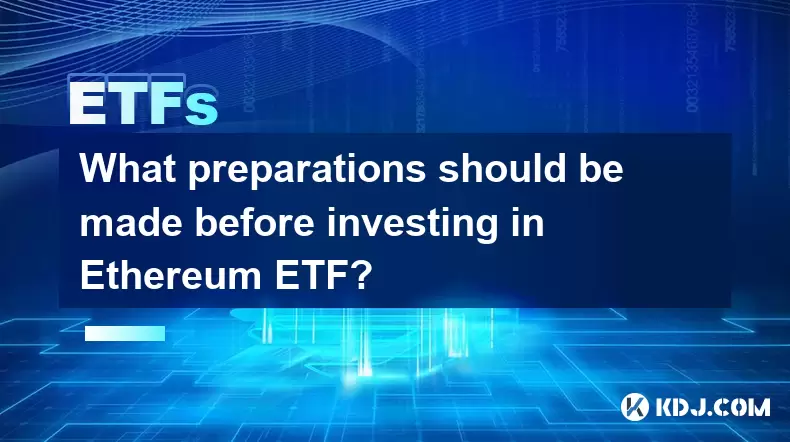
Understanding the Ethereum ETF Concept
Before investing in an Ethereum ETF (Exchange-Traded Fund), it's essential to understand what it entails. An Ethereum ETF is a financial product that tracks the price of Ethereum (ETH) and allows investors to gain exposure without directly holding the cryptocurrency. This type of fund is traded on traditional stock exchanges and offers liquidity, diversification, and ease of access for both institutional and retail investors.
Investors should first grasp how Ethereum ETFs differ from direct crypto ownership, including regulatory oversight, custodial arrangements, and fee structures. Unlike buying ETH on a digital exchange, ETFs are managed by asset management firms and subject to SEC approval in jurisdictions like the United States.
Evaluating Regulatory Environment and Legal Risks
One of the most critical preparations involves researching the regulatory landscape surrounding Ethereum ETFs in your country or region. In many jurisdictions, such as the U.S., the Securities and Exchange Commission (SEC) has been cautious about approving crypto-based ETFs due to concerns over market manipulation, custody solutions, and investor protection.
Before proceeding with an investment:
- Review the legal status of Ethereum ETFs in your jurisdiction
- Understand whether the fund has received formal regulatory approval
- Assess potential changes in legislation that could impact future performance
This step ensures you're not exposed to unforeseen legal risks or sudden policy shifts affecting the value of your investment.
Conducting Thorough Market Analysis
Market analysis plays a pivotal role in preparing for any investment. Before committing capital to an Ethereum ETF:
- Analyze Ethereum’s historical price movements
- Study macroeconomic factors influencing crypto markets
- Compare Ethereum ETFs with other crypto-related financial instruments
It’s also important to evaluate how Ethereum’s ecosystem developments affect its long-term viability. For example, upgrades like EIP-1559 and the transition to proof-of-stake have implications for supply dynamics and network security.
Selecting a Reliable Brokerage Platform
Once you’ve decided to invest, choosing the right brokerage platform becomes crucial. Not all brokers offer Ethereum ETFs, especially if they’re newly launched or only available in specific markets.
Consider the following when selecting a broker:
- Whether the platform supports Ethereum ETF trading
- Fee structure, including transaction fees and management costs
- Reputation and reliability of the brokerage firm
Additionally, ensure that the brokerage provides real-time data, research tools, and customer support tailored to ETF investments. Access to educational resources can also help improve decision-making.
Setting Investment Goals and Risk Management Strategies
Like any financial instrument, Ethereum ETFs carry risk. Preparing for these risks involves defining clear investment goals and implementing sound risk management strategies.
Before purchasing shares:
- Determine your investment horizon — short-term speculation or long-term holding
- Decide on portfolio allocation dedicated to Ethereum ETFs
- Set stop-loss levels or profit-taking thresholds based on your risk tolerance
It’s also advisable to monitor the volatility of Ethereum’s underlying market, as sharp price swings may influence ETF performance even though it's indirectly linked.
Frequently Asked Questions
Q: Do I need a crypto wallet to invest in Ethereum ETFs?
A: No, Ethereum ETFs do not require a crypto wallet, as they are traded like traditional stocks. You only need a brokerage account that supports ETF trading.
Q: How does an Ethereum ETF differ from a Bitcoin ETF?
A: While both track their respective cryptocurrencies, Ethereum ETFs reflect ETH price movements, whereas Bitcoin ETFs follow BTC. They may also differ in terms of issuer, expense ratio, and regulatory treatment.
Q: Can I redeem shares of an Ethereum ETF for actual ETH?
A: Typically, redemption for physical Ethereum is not possible with most ETF structures. The fund is designed to mirror ETH’s price without granting direct ownership of the asset.
Q: Are Ethereum ETFs taxable like regular stocks?
A: Yes, capital gains taxes apply to Ethereum ETF transactions, similar to other ETFs. Investors should consult a tax advisor to understand reporting obligations in their jurisdiction.
Disclaimer:info@kdj.com
The information provided is not trading advice. kdj.com does not assume any responsibility for any investments made based on the information provided in this article. Cryptocurrencies are highly volatile and it is highly recommended that you invest with caution after thorough research!
If you believe that the content used on this website infringes your copyright, please contact us immediately (info@kdj.com) and we will delete it promptly.
- Cold Wallet vs. MetaMask: A Crypto Wallet Revolution?
- 2025-07-31 10:30:57
- Bitcoin Casinos in 2025: Instant Payouts and Welcome Bonuses
- 2025-07-31 10:50:33
- Meme Coins in 2025: Token Burns and the Quest for Moonshots
- 2025-07-31 10:50:33
- Unlocking Value: A Deep Dive into Random Year 1 oz Krugerrand Gold Coins
- 2025-07-31 10:57:21
- LYNO Token Presale: AI Arbitrage Revolution in DeFi
- 2025-07-31 05:11:11
- Pepecoin Successors: Can These Cryptocurrencies Make You a Millionaire?
- 2025-07-31 05:50:12
Related knowledge
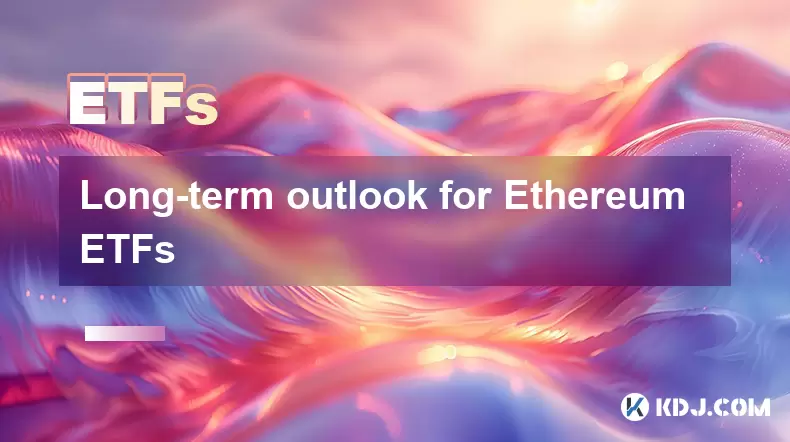
Long-term outlook for Ethereum ETFs
Jul 22,2025 at 06:42am
What Exactly Is an Ethereum ETF?An Ethereum Exchange-Traded Fund (ETF) is a financial product that tracks the price of Ethereum (ETH) and is traded on...
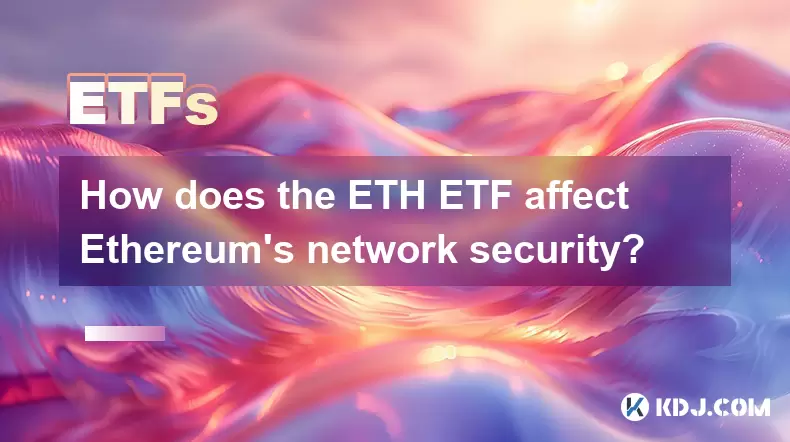
How does the ETH ETF affect Ethereum's network security?
Jul 17,2025 at 01:29pm
Understanding the ETH ETF ConceptAn Ethereum Exchange-Traded Fund (ETH ETF) is a financial product that allows investors to gain exposure to Ethereum ...
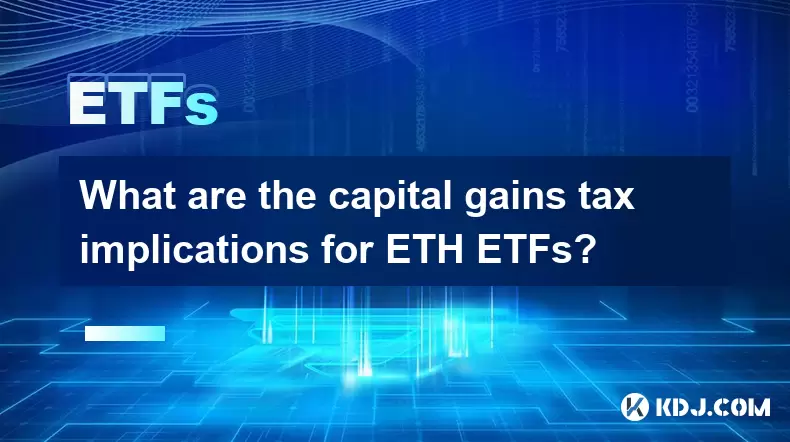
What are the capital gains tax implications for ETH ETFs?
Jul 18,2025 at 08:00am
Understanding Capital Gains Tax in Cryptocurrency InvestmentsCapital gains tax is a tax imposed on the profit realized from the sale of an asset that ...
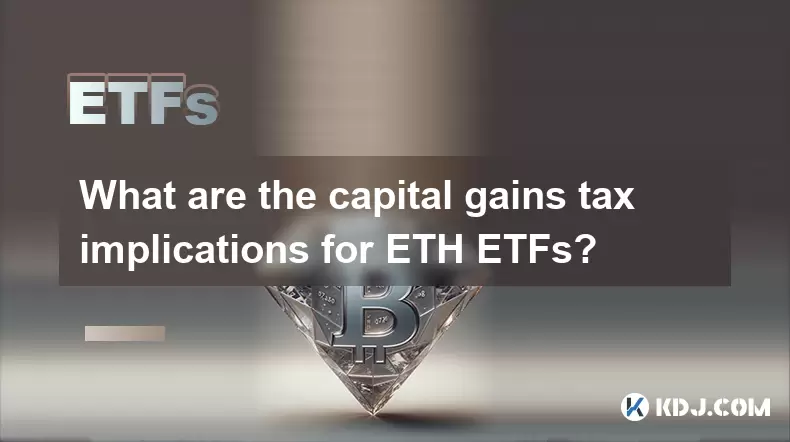
What are the capital gains tax implications for ETH ETFs?
Jul 21,2025 at 11:14am
Understanding ETH ETFs and Their TaxationAn Ethereum Exchange-Traded Fund (ETH ETF) allows investors to gain exposure to Ethereum without directly own...
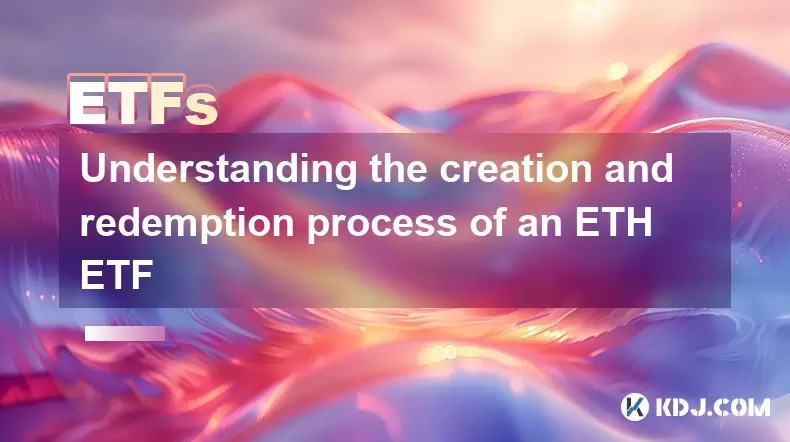
Understanding the creation and redemption process of an ETH ETF
Jul 19,2025 at 07:36am
What is an ETH ETF?An ETH ETF (Ethereum Exchange-Traded Fund) is a financial product designed to track the price of Ethereum without requiring investo...

How to analyze which ETH ETF is the best choice
Jul 19,2025 at 05:01pm
Understanding ETH ETFs and Their RelevanceEthereum Exchange-Traded Funds (ETFs) have emerged as a popular investment vehicle for those seeking exposur...

Long-term outlook for Ethereum ETFs
Jul 22,2025 at 06:42am
What Exactly Is an Ethereum ETF?An Ethereum Exchange-Traded Fund (ETF) is a financial product that tracks the price of Ethereum (ETH) and is traded on...

How does the ETH ETF affect Ethereum's network security?
Jul 17,2025 at 01:29pm
Understanding the ETH ETF ConceptAn Ethereum Exchange-Traded Fund (ETH ETF) is a financial product that allows investors to gain exposure to Ethereum ...

What are the capital gains tax implications for ETH ETFs?
Jul 18,2025 at 08:00am
Understanding Capital Gains Tax in Cryptocurrency InvestmentsCapital gains tax is a tax imposed on the profit realized from the sale of an asset that ...

What are the capital gains tax implications for ETH ETFs?
Jul 21,2025 at 11:14am
Understanding ETH ETFs and Their TaxationAn Ethereum Exchange-Traded Fund (ETH ETF) allows investors to gain exposure to Ethereum without directly own...

Understanding the creation and redemption process of an ETH ETF
Jul 19,2025 at 07:36am
What is an ETH ETF?An ETH ETF (Ethereum Exchange-Traded Fund) is a financial product designed to track the price of Ethereum without requiring investo...

How to analyze which ETH ETF is the best choice
Jul 19,2025 at 05:01pm
Understanding ETH ETFs and Their RelevanceEthereum Exchange-Traded Funds (ETFs) have emerged as a popular investment vehicle for those seeking exposur...
See all articles

























































































